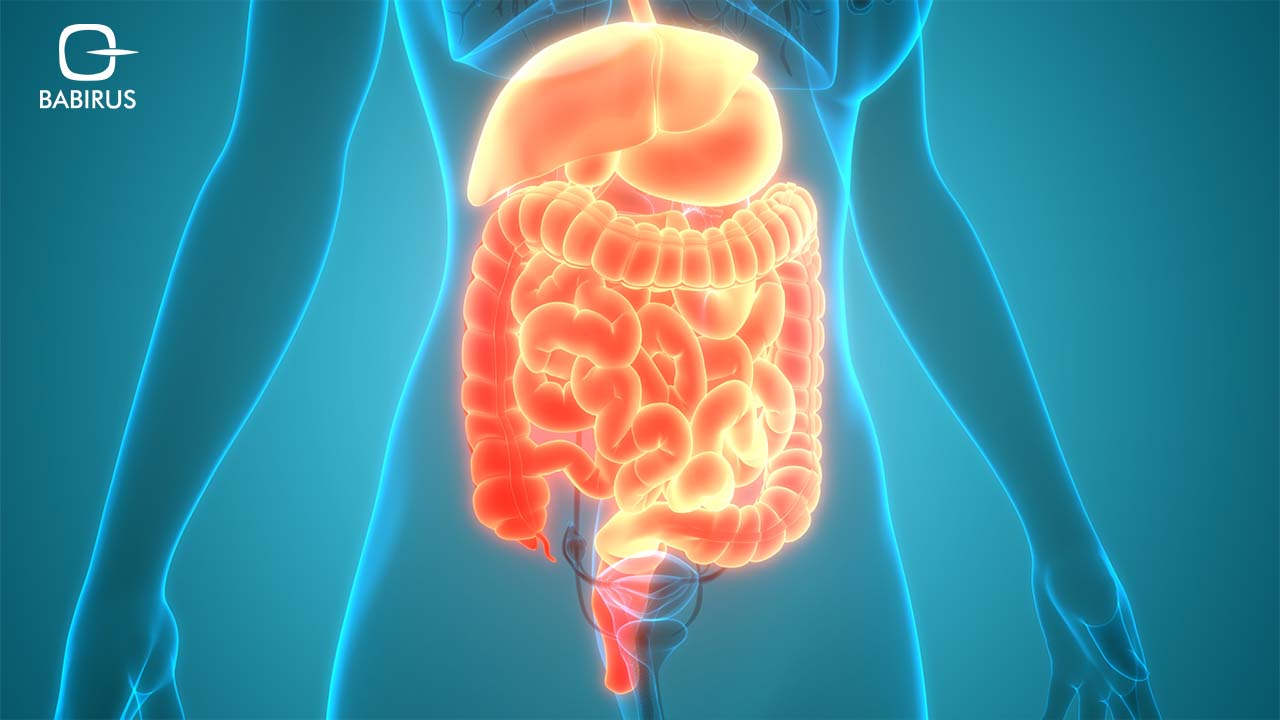Complete Digestive Health Guide: Understanding & Improvement Tips

Digestive health is a vital part of our health, that impacts our daily activities and life quality directly.
Moreover, the digestive process involves the appropriate functioning of your digestive system, including food breaking, nutrient absorption, and eliminating waste.
Having good and stable digestive health is a vital part of having overall good health, thus, you need to understand how to improve digestion naturally at home and address digestive health issues to protect your health and avoid various digestive disorders.
In this guide, we are going to cover all the information you need about digestive health, including what it is, how to improve it, and common digestive issues.
Understanding Digestive Health:
Digestive health term refers to the condition of the digestive system and its ability to function effectively to help your body benefit from all the ate food.
As you must know that the digestive system is made up of diverse organs: the mouth, the esophagus, the stomach, the small intestine, the large intestine, the colon, the rectum, and the anus, and each one of these organs has its own role in the digestive system.
The digestive system works in two main ways to break and digest food into smaller molecules that the body inherits:
- Mechanical digestionis the act of chewing and mixing food with digestive enzymes or acids.
- Chemical digestionis when enzymes and acids are used to break down food further into nutrients that the body can absorb.
The Vital Importance of Digestive Health
Protecting your digestive wellness is vital not only for your general health and life quality but also for so many reasons:
Nutrient Absorption:
A well-functioning digestive system enables good absorption of nutrients from your food, as they contain carbohydrates, protein, fats, vitamins, and minerals, which are vital sources for energy production, body growth, healing, and overall health.
Immune System Support:
The gut microbiome and immune system are directly impacted by each other, as a healthy gut microbiome (the community of microorganisms residing in our intestines) supports the protection process against risky bacteria and viruses while boosting immune function.
Mental Health:
Much new research shows a strong connection between gut health and mental health, because the gut-brain axis, is a two-way communication system between the gut and the brain, thus, digestive wellness influences mood, cognition, and behavior.
Disease Prevention:
Digestive health is linked to the prevention of various diseases, including digestive disorders, obesity, diabetes, heart disease, and certain types of cancer, and a well-functioning digestive system reduces the risk of developing these conditions.
Improve Digestive Health Naturally
Maintaining a healthy digestive system includes accepting certain lifestyle habits and making dietary choices that endorse ideal digestion, therefore, you must follow these tips to improve digestive health:
- Eat fruits and vegetables.
- Choose whole grains and nuts.
- Limit red and processed meats.
- Limit added sugars.
- Eat foods with probiotics.
- Stay hydrated.
- Exercise regularly.
- Maintain a healthy weight.
- Do not smoke.
- Get enough sleep.
- Reduce stress.
Nourishing Foods for Digestive Health
Eating the best digestive health food helps you to maintain a healthy digestive system by taking all the essential nutrients, promoting gut health, and aiding in digestion.
Furthermore, there are powerful and basic nourishing foods that you should include in your diet to support your digestive health:
Fiber-rich foods
Considering fiber is vital for maintaining regular bowel movements and preventing constipation, as well, fiber acts as a prebiotic, nourishing beneficial gut bacteria.
We can say that the best sources of fiber include whole grains, fruits, vegetables, legumes, nuts, and seeds.
Probiotic-rich foods
Probiotics are beneficial bacteria that empower your healthy balance of intestinal flora, by aiding digestion, supporting immune function, and reducing symptoms of certain digestive disorders such as irritable bowel syndrome (IBS) or inflammatory bowel disease (IBD).
Add these rich probiotics foods to your daily diet, including yogurt (preferably plain and unsweetened), kefir, sauerkraut, kimchi, miso, tempeh, and kombucha.
Ginger
Ginger has been used for a long time as a natural medicine for different digestive problems due to its anti-inflammatory properties that can help soothe the digestive tract and reduce symptoms such as nausea, bloating, and indigestion.
You can benefit from Ginger advantages, by taking it fresh or in powder form, and adding it to tea, smoothies, stir-fries, or soups.
Peppermint
Peppermint can relax the muscles of the gastrointestinal tract, which can help release symptoms of irritable bowel syndrome (IBS) such as abdominal pain, bloating, and gas.
Moreover, drinking peppermint tea or adding fresh mint leaves to water or dishes will help you to benefit from its advantages.
Fatty fish
Fatty fish types that include salmon, mackerel, sardines, and trout contain high levels of omega-3 fatty acids, that can ease symptoms of inflammatory bowel diseases like Crohn’s disease and ulcerative colitis.
Furthermore, these healthy fats have anti-inflammatory properties that can help reduce inflammation in the digestive tract and promote gut health.
Bone broth
Bone broth, which is rich in collagen, gelatin, and amino acids, is made by boiling animal bones (such as chicken or beef) with water and many vegetables and herbs.
Additionally, it is used to help endorse intestinal health and repair the intestinal lining.
Papaya
Papaya contains an enzyme called papain, which benefits in digesting proteins, by breaking down proteins in the stomach and making them easier to digest and absorb.
Next to papaya other benefits to digestive health due to all its contained fiber and antioxidants.
Turmeric
Turmeric has a component called curcumin, which has powerful anti-inflammatory properties that can reduce inflammation in the gut and lessen symptoms of digestive disorders like ulcerative colitis or Crohn’s disease.
Aloe vera
Aloe vera has anti-inflammatory properties that aid you in reducing inflammation in the gut lining and promote healing.
Moreover, it has been used for centuries to calm digestive discomforts such as acid reflux, indigestion, and irritable bowel syndrome (IBS).
Water
Staying hydrated is essential not only to have a digestive health day, but also for your general health, thus, drinking a suitable amount of water throughout your day helps soften the stool, prevent constipation, and support your general digestive health.
6 Key Digestive Health Disorders to Know
No matter how careful you are, yet you will suffer from different digestive issues due to many factors such as poor diet, stress, sedentary lifestyle, or underlying medical conditions.
Moreover, in gastroenterology, there are digestive health diseases:
-
Acid Reflux
- What it is: A condition where stomach acid flows back into the esophagus, causing heartburn and irritation.
- Causes: Weak esophageal sphincter, overeating, or high-fat meals.
- Symptoms: Burning sensation in the chest, regurgitation, and nausea.
- Management: Eat smaller meals, avoid trigger foods, and use antacids as prescribed.
-
Irritable Bowel Syndrome (IBS)
- What it is: A functional disorder affecting the large intestine.
- Symptoms: Abdominal pain, bloating, gas, and altered bowel habits.
- Causes: Stress, food sensitivities, or gut-brain interaction issues.
- Management: Stress reduction, dietary adjustments (e.g., low FODMAP), and probiotics.
-
Constipation
- What it is: Infrequent or difficult bowel movements.
- Symptoms: Straining, hard stools, and discomfort.
- Causes: Lack of fiber, dehydration, or sedentary lifestyle.
- Management: Increase dietary fiber, hydrate well, and exercise.
-
Diarrhea
- What it is: Loose, watery stools occurring frequently.
- Causes: Infections, food intolerance, or medications.
- Symptoms: Cramping, urgency, and dehydration risk.
- Management: Hydration, electrolyte replacement, and anti-diarrheal medication.
-
Peptic Ulcers
- What they are: Open sores on the stomach lining or duodenum, often caused by H. pylori or NSAIDs.
- Symptoms: Burning stomach pain, bloating, and nausea.
- Management: Avoid spicy foods, reduce stress, and take prescribed antibiotics or acid reducers.
-
Inflammatory Bowel Disease (IBD)
- What it is: Chronic inflammation of the digestive tract (e.g., Crohn’s or Ulcerative Colitis).
- Symptoms: Severe diarrhea, fatigue, weight loss, and abdominal pain.
- Causes: Immune system dysfunction and genetic factors.
- Management: Anti-inflammatory medications, biologics, and sometimes surgery.
Key Digestive Health Products for Daily Wellness
Relying on Babirus Medical Equipment Trading LLC in your digestive health diagnoses based on trusted and accurate tests for different immunodiagnostic processes.
As a medical equipment supplier and distributor, we comprehend the importance of providing reliable and effective products to support professionals working to support their patient’s digestive health.
Thus, we offer our customers a wide range of immuno diagnostic and digestive health products so they can keep their health on the right track.
Seeking Expert Advice from Digestive Health Specialists:
We know how much digestive issues can impact your overall health and life quality, and understand your constant seeking to find the best digestive health specialists and benefit from their professional advice to reach the best solution for your case.
However, health specialists, also known as gastroenterologists, are medical professionals focused on diagnosing and treating disorders of the gastrointestinal (GI) tract.
As they possess wide knowledge and expertise in classifying and handling many digestive conditions, ensuring accurate diagnoses, and creating effective treatment plans.
Celebrating Digestive Health Day:
Digestive Health Day is an annual event celebrated on May 29th, with a goal to improve public awareness about the importance of maintaining a healthy digestive system, by educating people about different digestive disorders, their prevention, and management.
Moreover, it also highlights the importance of a balanced diet, regular exercise, and lifestyle modifications for the sake of protecting your digestive health.
Eventually,
Maintaining good digestive health will directly impact your overall wellness, thus, understanding the importance of digestive health, implementing improvements to your daily diet, and being aware of common issues, will support your digestive system and lead a healthier life.
Seek personalized advice from healthcare professionals who have the best medical equipment for your symptoms, contact us now to guide you in your search.

